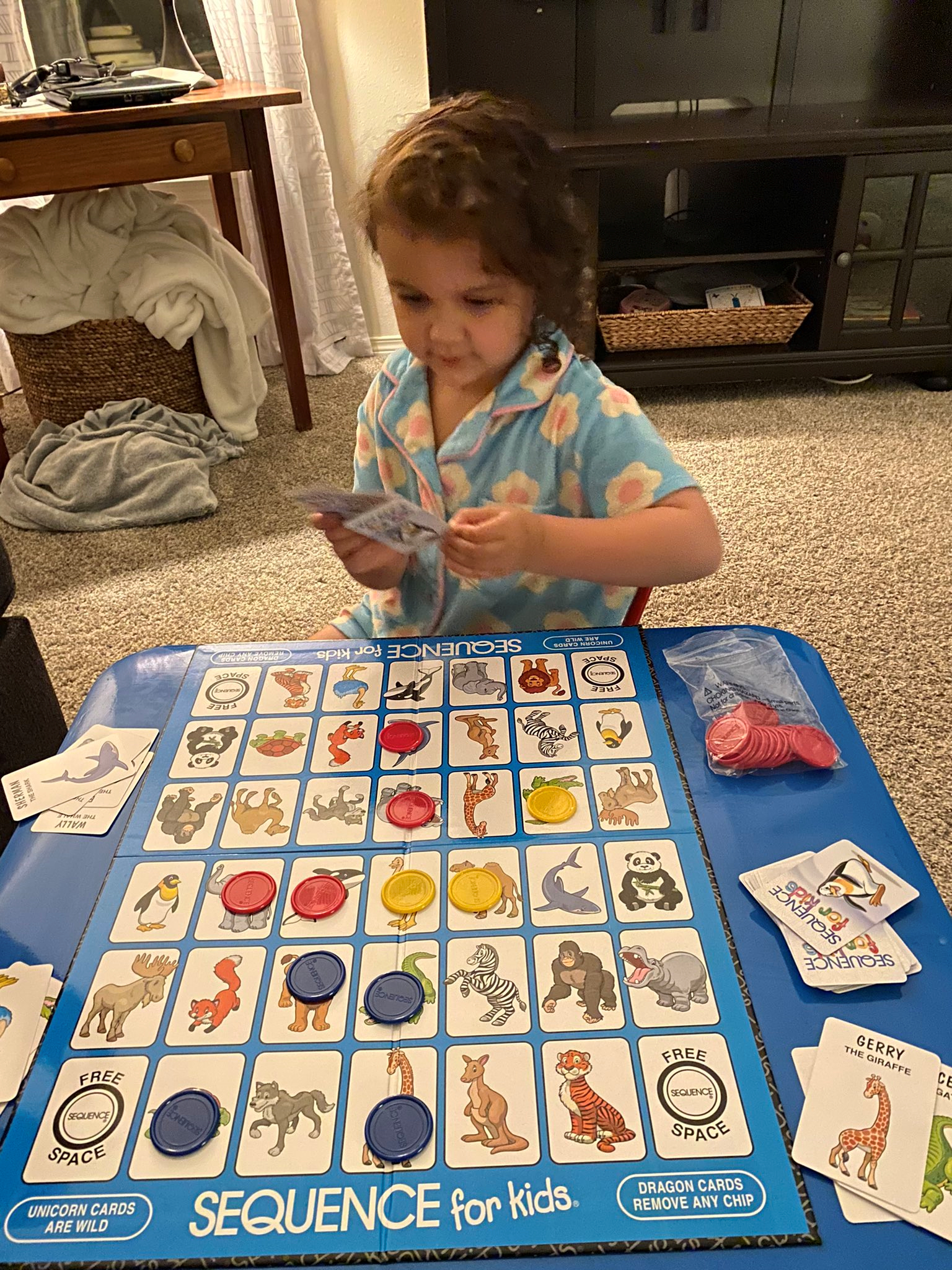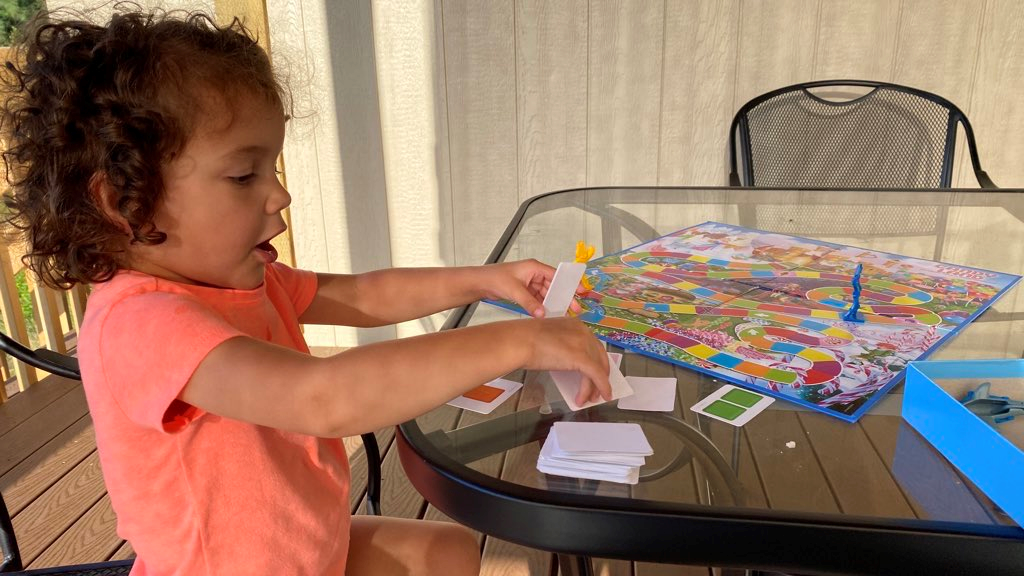Sloan likes to get into Trouble. And by “Trouble” I mean the board game. Our family received the game for Christmas and have played it countless times over the past few months. It joins Sequence for Kids, Guess Who, and Candy Land as board games our family plays frequently.

We got Trouble for Christmas and immediately started playing it. Sloan gets pretty competitive!
But back to the “Trouble” part. Sloan likes to win and when that doesn’t happen, she can become unglued. She will tense up, pout, and raise her voice. A common recourse for her is to beg that we play again so she has another chance at glory. If her wish isn’t granted, she gets angrier.
Although the behavior doesn’t impress us by any means, we also recognize it as age appropriate. Sid and I hope that tasting defeat now and expelling her bad behavior as a 6-year-old will prepare her so that she will win with class and lose with grace as she gets older.

Sequence for Kids is a great game for young children that introduces strategic thinking.
This philosophy was challenged last week. While returning home from dropping Sloan off at school, I was listening to a Sirius channel I enjoy. A certain advice program was on at the time. The two hosts, who have child psychology backgrounds, took a call from a grandma. This particular caller mentioned that on Easter her family played a board game. Her 5-year-old grandchild was not victorious and could not be consoled for the rest of the holiday. The grandma expressed shock at how intense this child’s lack of sportsmanship was and asked the hosts for advice.
To be honest, I was surprised when both hosts agreed that children under the age of 7 should not play “win/lose” games. The hosts main reason for this recommendation was that children Sloan’s age and under can’t properly put the results of a board game in proper perspective. Young kids, the hosts explained, almost view the outcome of a board game as life or death, thus creating unnecessary stress on them.

Sloan playing Candy Land outside.
Additionally, just the concept of a child competing against everyone else has negative connotations, according to the hosts. It causes isolation and a diminished sense of self.
As for solutions, the hosts recommended “collaborative games” instead of “win/lose” games. The concept wasn’t backed up with examples (at least during the time I was listening) so I don’t really know what a “collaborative game” entails, but in this day and age I am sure a lot of them exist. Also, they suggested that if a win/lose game must be played, that teams are made and a child is paired with an adult. With this arrangement, the weight of defeat doesn’t fall squarely on the shoulders of the child. Furthermore, when the loss occurs, the child can commiserate with a trusted adult in the agony that is felt.
I am having a difficult time accepting the advice of these radio hosts. In my mind, I feel like tough lessons about losing should be taught and experienced at a young age. With that said, I do recognize the anguish that losing a board game has on Sloan so perhaps they are on to something? I am turning to my readers for advice. What is the proper approach? To play or not to play? Don’t Blink.

Collaborative games are amazing!! I like how it teaches kids to work together and you can help model how to win or lose because you are doing it together. Here are our favorites: Outfoxed, Race to the Treasure, Gnomes at Night. When Finn was little we started with Hoot Owl Hoot and Count Your Chickens. Highly recommend you give them a try!